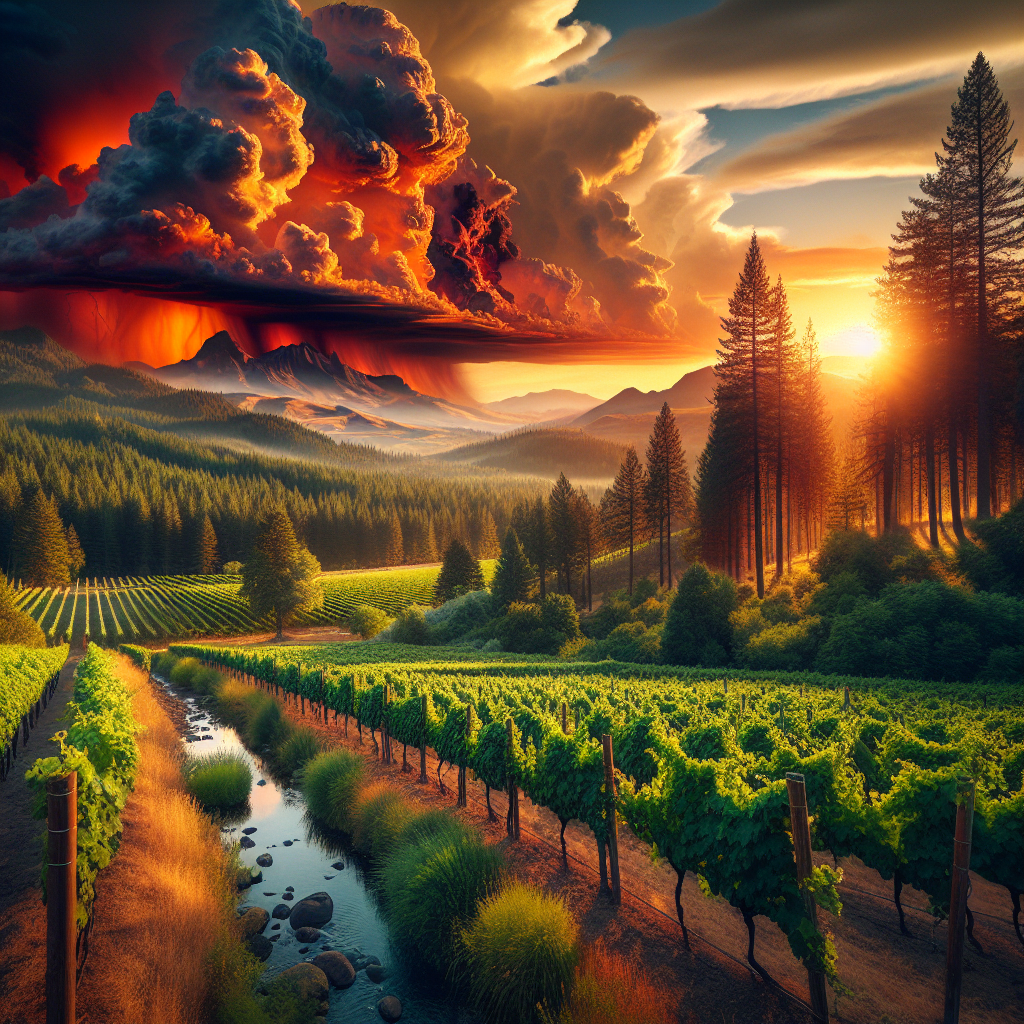Kissing the Sky: Climate Change & Oregon’s Priceless Pour
Burrowed amidst the sizably majestic Cascade Range, cradled by the lush Willamette Valley, Oregon’s wine industry is both a point of pride and a vital economic contributor for our beloved Beaver State. As any self-respecting Oregonian would tell you, not only do we hold our Pinot Noirs in high regard, but also our uniquely vibrant, dry Rieslings and exhilaratingly crisp Chardonnays.
However, a turn of the seasons is quietly imposing its effects on our vineyards. The forces of climate change are increasingly moving into our winemaking formula, reshaping Oregon’s renowned viticulture in ways we’d never thought we’d have to uncork.
From Valley to Vine
Cast an eye across the idyllic Willamette Valley from viewpoint of the iconic Pittock Mansion. You see a patchwork quilt of healthy vineyards stretched across the rolling landscape, a sight most Oregonians are proud to take credit for. But recently, vintners and scientists like folks at the Linfield University’s Evenstad Center for Wine Education are noticing uninvited guests showing up to our vinous party – unseasonal temperatures and precipitation.

Increased rainfall during harvest can dilute grapes, while warmer summers cause accelerated ripening, which can change the fruit’s sugar to acid ratio – the very soul of wine’s flavor identity. We’ve already seen our famed January inversions (locals know them as our “bonus summer”) intensifying, and our equally famous rainy seasons extending well into our usual Pinot-picking time.
Brewing Changes in the Bottles
And while one might think that the earlier ripening of grapes is a boon─let’s all admit, we Oregonians love an early trip to the Yamhill County wineries to fill our cellars─there’s a silver lining and a storm cloud. Yes, this may result in more robust vintages, but it could also lead to a dramatic shift in the traditional taste profile of Oregon’s wines. We might soon miss the days when Oregon was renowned for its light-bodied, high-acid, lower-alcohol wines that paired perfectly with Grandpa’s clams at the annual family beach trip to Cannon Beach.
In fact, our southern sister vineyards in California have already seen this shift with their French varietals. In Oregon, our winemakers─like the good folks at Sokol Blosser Winery and Adelsheim Vineyard─are already adjusting to this new norm.
The Green Vine Dream
But if there’s one thing we Oregonians love more than a good pour from our local wineries, it’s the endless greenery and beauty around us. We’re stepping up, using our Conestoga-rolling, trail-blazing spirit to adapt and innovate in the face of climate change.
In this thermal tug-of-war, many wineries are turning towards sustainable winemaking practices. They are reshaping vineyard management, adjusting harvesting times, and introducing heat-tolerant grape varieties. It’s probably the same inventive mindset that brought Voodoo Doughnut to birth their bacon maple bars!
One example lies nestled in the Applegate Valley, where Troon Vineyard continues to lead the way using biodynamic farming practices to maintain healthy vineyards, irrespective of Mother Nature’s mood swings. In Southern Oregon, Abacela Vineyard is experimenting with grape varieties from warmer climates, ensuring that no matter what Mother Nature throws at us, we’ll still have a comforting bottle to snuggle up with during those rainy Netflix nights.
Sipping through the Changes
Climate change is a reality and its impact on our Oregon wine industry is undeniable. But it isn’t all doom and gloom. As unpredictable as an OSU versus UO Civil War match, our locally grown and bottled wines may be changing, but our pioneering spirit remains unaltered.
As we sip our way into this uncertain future, let’s not forget to support our local winemakers, who, much like the elusive Sasquatch, are sometimes hidden amidst the forests of the Cascade Range, but always there, contributing to the richness of our state, making Oregon, well, Oregon.
So, next time you’re strolling through your local Bend Farmers Market or enjoying a peaceful evening by Mirror Pond, don’t forget to raise a toast to our hardworking vineyards and their efforts to keep Oregon’s wine industry thriving, no matter the climate.
